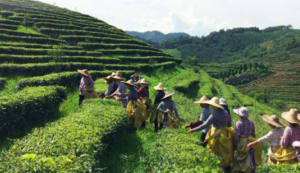Tuesday, May 14th
MCZ 101, 26 Oxford Street, Harvard University
07:30 PM
Can a leafhopper rescue tea from climate change?
Eric Scott
Ph.D. Candidate, Tufts University

When insect herbivores feed on agricultural crops, they are labeled as destructive “pests”. In addition to decreasing crop yields, feeding by insects causes plants to defend themselves by producing secondary metabolites, many of which are important for the flavor and aroma of our foods. Tea farmers in Taiwan began taking advantage of this phenomenon in the 1930s to produce a high-quality tea called “Eastern Beauty Oolong” which can only be made from tea plants infested with the tea green leafhopper, Empoasca onukii. However, as the climate changes, the abundance of agricultural pests is expected to increase, which could threaten this innovative style of tea through changes in tea plant chemistry as leafhopper damage increases.
The talk is free and open to the public. The meeting is readily accessible via public transportation. Parking is available in the Oxford Street Garage with advance arrangement, as described here, or (usually but not always) at spaces on nearby streets. Everyone is also welcome to join us for dinner before the talk (beginning at 5:45 PM) at the Cambridge Common, 1667 Mass Ave., Cambridge.
CEC meetings are held the second Tuesday of the month from October through May. The evening schedule typically includes an informal dinner (5:45 to 7:15 PM) followed by our formal meeting (7:30 – 9:00 PM). The latter begins with club business and is followed by a 60-minute entomology related presentation. Membership is open to amateur and professional entomologists.


